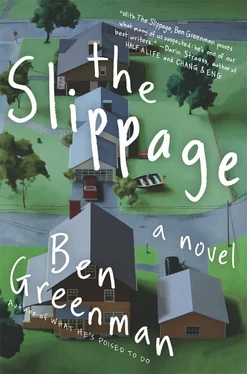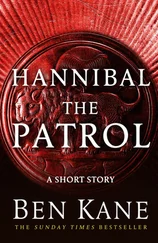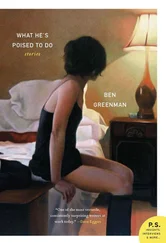Part VII. THE LAUNCH PARTY
Six months later, a lifetime, William’s car was in the shop, and he was driving Louisa’s car home from Tom’s book party, and Louisa was saying how surprised she was that Tom had gotten back together with Annika, and wasn’t it strange that he didn’t look happier, and William was murmuring vaguely, neither agreeing nor disagreeing, careful not to reveal what he knew about the situation, which was that Tom and Jesse had quickly settled on a wedding date, and just as quickly fallen to fighting, and that a bitter month had ended with her decision to leave him for good, and that she was now pregnant by another man upstate. Instead, William said that Annika looked as though she had aged five years in the year since she and Tom had last been together, and that was when Louisa put both her hands on the dashboard in front of her in a gesture of conspicuous steadying and told William that, during a particularly bad stretch in the spring and summer, she had been sleeping with a man who worked at her office.
They were on Loomis Street, near Harrow, only blocks from the empty lot where their new house would have been. There was a pond to their left and a small park to their right. The windows were down because the temperature was mild, and crickets called out through the perfect night.
William turned into the park’s paved lot. There was one other car there, an old VW Beetle with two teenage girls in it, smoking. A third girl was in the back seat; William glimpsed a strip of bare shoulder. He pulled past the Bug and into an empty space at the far end of the lot.
“So,” he said. The word was like a hole in the air.
Things had been going well since the house burned down, more smoothly than William had any reason to expect. He had celebrated a birthday, and then Louisa had, and in both cases they had taken quiet dinners at new restaurants downtown and talked frankly about how, despite all that had happened, they were lucky. William had found work at a large bank, a job that was a natural continuation of what he had done at Hollister. He described investment opportunities and nudged customers toward those that seemed to best suit their needs. His new boss saw him as a quick study, was always saying so, had already moved William into a bigger office and after only six months had already given him a substantial bonus. Louisa’s boss, the museum’s top administrator, had retired for health reasons, and the board had asked Louisa if she would consider taking the position on an acting basis, and she had, and though they were still negotiating whether they could come to permanent terms, Louisa felt that even if it all fell apart she’d be assured of a position at least that good at another museum. They had buried the dog in their yard, in the corner near the little girls who liked to sing, and they had stood on the deck afterward, afraid to sit for fear that might make it seem more real, and he had folded her against his chest.
The park light over them, a metal drop at the top of a metal stalk, blinked erratically. William sat for a minute with the engine going, pushed the pads on the seat down with his hands. In his rearview mirror he saw the Beetle pulling out of the lot. The radio was on the same station it had been on that afternoon, but the program had changed from talk to music, gentle jazz whose effect, paradoxically, was to make the anger rising in him even hotter and sharper. He didn’t know what to say, so he said nothing.
Louisa had made her admission matter-of-factly, responding, William figured, to some internal train of thought: maybe something Gloria Fitch had said about errant spouses, meaning Graham Kenner, who had been drummed out of the house when Cassandra had discovered him with Helen Hull; or maybe she was thinking about the cover of Tom’s book, Graph Zeppelin , and how it had a line that sloped diagonally downward and ended in a fiery crash; or perhaps she was simply observing how Tom put his arm around Annika like he was keeping his distance from her and lamenting the way that unhappiness could bloom between people like a black flower. She hadn’t taken a deep breath before speaking, or told William he should brace himself, or done anything at all in prelude or preparation. She had just clicked the clasp of her purse closed and then open and put her hands flat on the dash and told him the news. As the light flickered above, she elaborated slightly: the man was a lawyer working for the museum on a lawsuit brought by a woman whose son had been injured when part of an exhibit had fallen on him. The man had come by the office, which seemed entirely necessary given the case. Louisa thought nothing of it until he invited her to coffee. They had flirted for six months or so. “This was a while ago,” she said. “Last spring.”
“Before I went to the trade show?”
She squinted. “I had met him, yes. It wasn’t why I sent you to Chicago, though when you were gone the thought did occur to me. Nothing happened then, though. Then he went away on another job and I didn’t see him for a while, and then one day he came by for lunch, and one thing led to another.” William asked where; Louisa said a motel. “It happened one time after that,” she said. “Two total. That was all. He didn’t keep after me to continue, and I was relieved because I wasn’t interested at all. At some point I felt that I had never been so uninterested in anything in my whole life.”
William rolled down the window. It was colder outside now, which seemed to focus the noises of the night. William put his hand down on the fabric of the seat and started to make a fist. At first it was purely theatrical; he wanted Louisa to see his hand clenching and unclenching. But the more he did it, the more he thought maybe it was accurately reflecting what he felt inside: the anger, the confusion, the need to hold tight to something certain. He believed he should speak, and probably with a question. She had told him who, and how long. Should he ask why?
He must have, because Louisa turned toward him, her expression now opened up. Silence slowly closed it. She crossed and uncrossed her ankles and laughed, or made a noise close to it — not nervous, he didn’t think, but more in the fashion of a tipsy wife. “Well,” she finally said. “Are there ever real reasons?” This question didn’t seem rhetorical, and so William started to answer her, but he managed only a few words before she interrupted him. “I wasn’t running toward him, not for a second. I was running away from my life.” Again, William started to speak, and again, she interrupted. “Maybe that’s the wrong way to say it. I needed to know that I existed. Was I even casting a shadow? John was a nice man, but weak.” She cocked her head to one side. “In fact, I think you met him once. In the mall.” William did not remember. “An older guy, kind of gaunt.” William thought suddenly of long, bony hands, which he did his best not to picture sliding up his wife’s leg, or worse. “Before him, I wasn’t sleeping well for a while, and then I wasn’t sleeping at all. I started to drink more than I wanted. Remember the mail? I was afraid I might vanish and I started setting it aside as proof that there was something only I knew. This was just a version of that.”
A light shone in the rearview mirror. It was a car coming into the lot, the kind of full-size station wagon William didn’t see much anymore. It lurched heavily into a parking spot a few spaces down from William and Louisa, and three teenagers piled out noisily. The girl walked around to the hood, looking angry, and leaned against it. Two boys followed her at a delay; one seemed to be pleading with her, the other mocking her, both slightly, and as William watched he wasn’t sure he didn’t have it reversed, because she seemed to be receptive to the one who was mocking and dismissive of the one who was pleading. Both boys produced cigarettes and started to smoke them, or were they joints? The car radio was on too loud, playing a song William had loved when he was their age. Louisa noticed it too. “It’s like we’re watching a time machine,” she said.
Читать дальше












